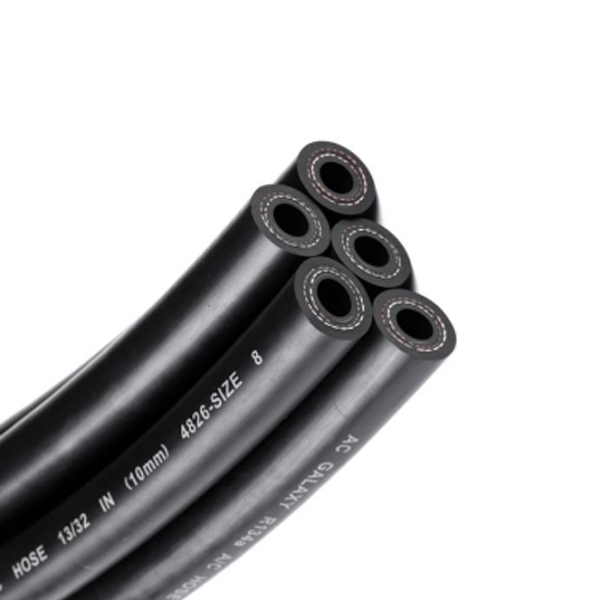Choosing the Right Rubber Fuel Line for Your Vehicle's Fuel System
តុលា . 01, 2024 01:39 Back to list
Choosing the Right Rubber Fuel Line for Your Vehicle's Fuel System
Understanding Rubber Fuel Lines Importance, Features, and Maintenance
Rubber fuel lines are critical components of a vehicle's fuel system, often overlooked but essential for optimal performance and safety. These flexible tubes connect various fuel system parts, including the fuel tank, fuel pump, and injectors, transporting fuel from one component to another. Understanding their significance, features, and maintenance can enhance the longevity of your vehicle and ensure efficient fuel delivery.
Importance of Rubber Fuel Lines
Fuel lines are designed to withstand various environmental factors such as temperature fluctuations, vibrations, and exposure to chemicals. Rubber fuel lines are particularly valued for their versatility and resistance to wear and tear. They play a vital role in ensuring that fuel travels smoothly from the tank to the engine, where it undergoes combustion to power the vehicle. A malfunctioning or worn-out fuel line can lead to fuel leaks, which not only waste fuel but also pose significant safety hazards, including the risk of fire.
Features of Rubber Fuel Lines
1. Material Composition Rubber fuel lines are typically made from synthetic rubber compounds. These materials are engineered to withstand the corrosive nature of fuel and provide flexibility, allowing for easy installation and routing in tight spaces.
2. Temperature Resistance High-quality rubber fuel lines can endure extreme temperatures, from the cold of winter mornings to the heat created by the engine. This temperature resilience is crucial for maintaining fuel flow and preventing failures that could lead to engine problems.
3. Pressure Ratings Fuel lines must be able to handle varying pressure levels in the fuel system. Rubber fuel lines are engineered with specific pressure ratings, ensuring they can support fuel delivery without bursting under pressure.
4. Compatibility with Fuels Not all rubber materials are created equal; some may not be compatible with certain fuels, such as ethanol-blended gasoline or diesel. It’s essential to choose rubber lines designed for the specific type of fuel used in your vehicle.
5. Flexibility and Durability The inherent flexibility of rubber allows for easy installation, especially in applications where space is limited. Additionally, they are durable enough to resist abrasions and cuts that can occur over time.
rubber fuel line

Maintenance of Rubber Fuel Lines
To ensure the longevity and efficiency of rubber fuel lines, regular inspection and maintenance are essential. Here are some tips for proper care
1. Regular Inspections Periodically check fuel lines for any signs of wear, including cracks, bulges, or leaks. Addressing these issues early can prevent more severe problems down the road.
2. Check Connections Ensure that all connections are tight. Loose fittings can lead to leaks, which are not only wasteful but also dangerous.
3. Replace When Necessary If any part of the rubber line shows significant wear or damage, it’s vital to replace it promptly. Failing to do so can lead to fuel leaks, engine performance issues, and possibly dangerous situations.
4. Use the Right Tools When removing or installing fuel lines, use appropriate tools and techniques to avoid damaging the rubber. Specialized hose clamps and cutting tools can help maintain the integrity of the lines during service.
5. Store Properly When not in use, keep fuel line components in a cool, dry place and avoid exposure to direct sunlight, as prolonged UV exposure can break down rubber materials.
Conclusion
Rubber fuel lines are an essential yet often overlooked aspect of a vehicle's fuel system. Their importance in ensuring seamless fuel delivery cannot be overstated. By understanding their features, recognizing their importance, and adhering to maintenance practices, vehicle owners can enhance performance, ensure safety, and prolong the life of their automotive systems. Regular vigilance and care will help keep your vehicle running smoothly, making rubber fuel lines a cornerstone of vehicle maintenance.
Latest news
-
Automotive Fuel Line & Hose Solutions | E85 & Diesel Ready
NewsAug.26,2025
-
Reliable Automotive Fuel Line | E85 & Diesel Compatible
NewsAug.25,2025
-
Durable Car Heater Hose | Quality Automotive Preheater Pipes
NewsAug.24,2025
-
Durable Air Brake Hose & Air Lines for Trucks | Safety Ensured
NewsAug.23,2025
-
Air Conditioning Charging Hose: Durable AC Recharge Kits
NewsAug.22,2025
-
Premium 4890 AC Hose | Durable & Perfect Fit Replacement
NewsAug.21,2025
